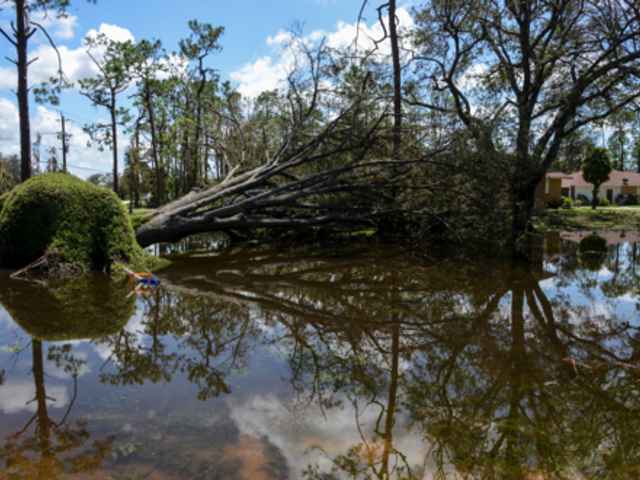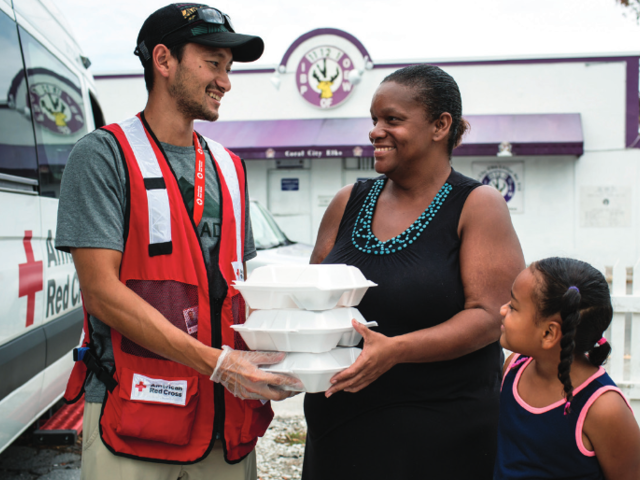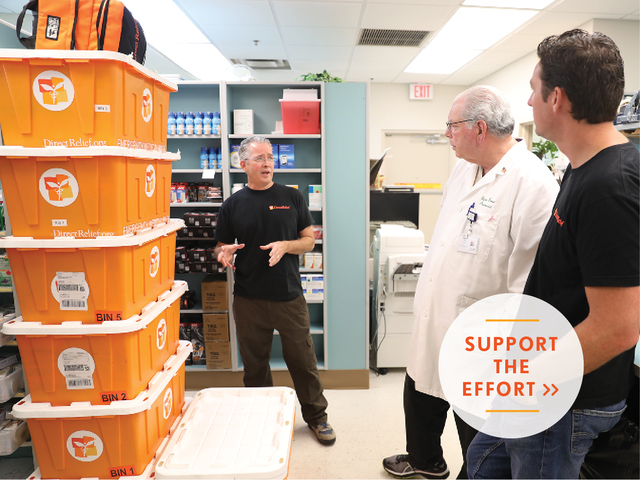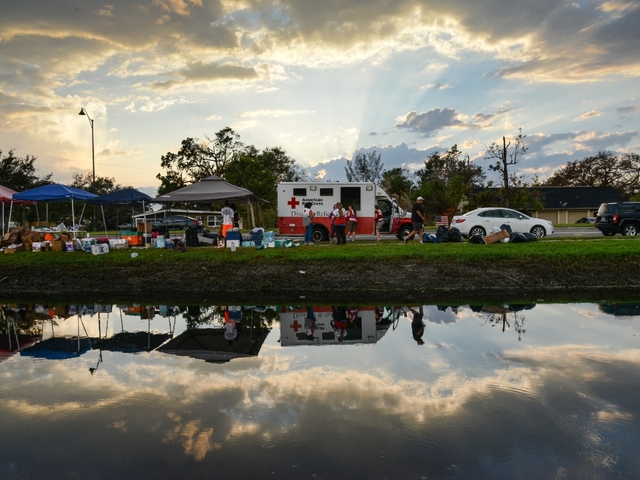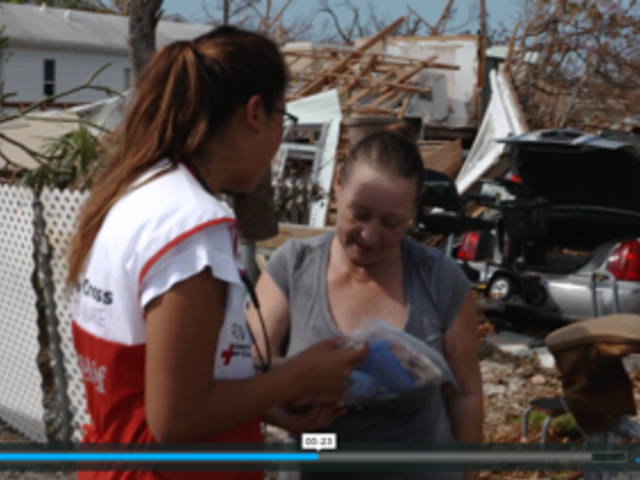Hurricane Irma churned her way through Florida, Georgia, South Carolina, Alabama and nearby states, destroying areas in South Florida and the Keys and causing flooding conditions in Jacksonville and South Carolina. Storm surge flooding in Jacksonville, Florida, broke records set in 1965 during Hurricane Dora, according to the National Weather Service.
In Florida, people are still dealing with river flooding, power outages for millions of households, fuel shortages and crowded highways as people try to go back home. In some counties, evacuations and curfews remain in effect, along with boil water advisories. On Tuesday, FEMA indicated that as many as 15 million people were without power. Officials expect the east coast of Florida to have power by Sunday; it could be more than 10 days for other areas. Access to fuel remains a major issue across the state – in Naples, gas lines are reported to be 500 cars long.
In the Florida Keys, officials estimate that 25 percent of the homes are destroyed and 90 percent damaged. Access to the Keys remains limited.
Now more than ever we need to keep the cities and towns affected by Irma front and center; as responders make their way into the affected communities today and in the days to come to assess the extent of damage, the full scope of Irma’s fury remains to be seen.
In the Caribbean, damage and needs assessments are ongoing for the affected countries and territories. Preliminary reports indicate the most severely affected are Anguilla, Barbuda, British Virgin Islands, Cuba, Saint Martin, St Maarten, Saint Barthélemy and Turks and Caicos Islands. There was severe damage to major infrastructure and health centers, and there is a loss of electricity and limited access to clean water. Figures are expected to rise as damage and needs assessments continue in several countries.
Red Cross Response to Hurricane Irma
Domestic Response
The American Red Cross has setup a massive relief effort across multiple states, Puerto Rico and the U.S. Virgin Islands to help people in the path of Hurricane Irma’s destruction. About 2,900 Red Cross workers are responding to Irma now, with close to 450 more on the way.
Overnight, nearly 22,000 people were provided refuge from Hurricane Irma in nearly 200 government and Red Cross evacuation centers across 6 states, Puerto Rico and the U.S. Virgin Islands. This includes:
· In Florida, more than 19,000 people in 138 evacuation centers;
· In Georgia, more than 1,470 people in 18 evacuation centers;
· In Alabama, about 1,100 people in 14 evacuation centers;
· In South Carolina, about 3 people remain in evacuation centers;
· On the U.S. Virgin Islands, 181 people in 5 evacuation centers;
· In Puerto Rico, 184 people in 4 evacuation centers;
· In Tennessee, 103 people in 7 evacuation centers; and
· In North Carolina, 30 people in 5 evacuation centers.
In addition, we’ve served more than 154,000 and snacks to date and our mental health and health services professionals have provided more than 10,500 contacts to those affected.
To date, evacuation centers have provided 507,000 overnight stays to people needing a safe place to go. As a reminder, evacuation centers are different from shelters – they are intended to provide a safe place for people to ride out a dangerous weather event and are not intended for prolonged overnight stays and feeding support.
In Puerto Rico, preliminary reports indicate more than 800 homes received major damage with some still inaccessible. More than a million people are without power. The Red Cross continues to provide assistance to clients with casework, distribution of emergency supplies, disaster mental health, health services, mass care and other services.
The American Red Cross has been on the ground in the in the U.S. Virgin Islands providing food, safe shelter and comfort to people impacted by Hurricane Irma. Local community volunteers and staff have been working around the clock to provide food, shelter and comfort across the U.S. Virgin Islands, including St. Croix, St. Thomas and St. John. Many of those responding were affected by Irma and are staying in Red Cross shelters as they continue their commitment to providing relief to their community. Recovery efforts are underway as more volunteers are being sent to relieve those who have been responding so they can go back to their homes, begin repairs, and be with their friends and family. The Red Cross has plans to deliver relief supplies so people can begin to pick up the pieces to rebuild their lives on the U.S. Virgin Islands.
International Response
Red Cross Societies from around the world are responding on Caribbean islands where Hurricane Irma left behind catastrophic devastation, starting what could become a complex, multi-country relief and recovery effort. The Red Cross societies across the Caribbean are focused on meeting the immediate needs in their territories. These needs include search and rescue, the distribution of vital relief supplies, and damage and needs assessments as well as steps to reduce the risk of epidemic outbreaks. Staff and volunteers are working closely with local authorities and the IFRC.
The International Federation of the Red Cross (IFRC) has announced an international appeal to support hundreds of hurricane-affected families in the region. This appeal will enable the Red Cross Societies of those countries to address critical health and water and sanitation needs, as well as shelter and livelihood support.
In Barbuda, roads and communications systems remain ravaged. Electricity and water services are not operational. 50% of the population of Barbuda has been rendered homeless.
More than 1 million people have been evacuated from the municipalities in Cuba. In Havana, reports indicate a severe impact. There is significant damage to homes and infrastructure, particularly in Guantánamo’s Baracoa city.
In Haiti, the American Red Cross is working closely with Haitian Red Cross and other partners to assess the damage in the northern region of the country and distribute vital relief supplies. 10,000 people are in 59 temporary shelters. Homes and other buildings are flooded in the north.
